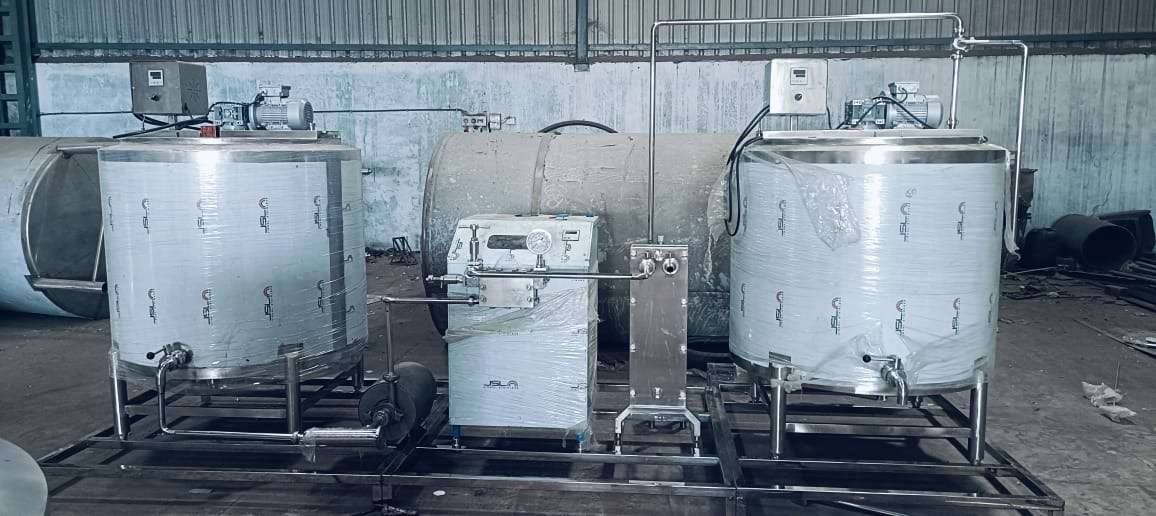Making Greek yogurt at home is a satisfying process that yields delicious, creamy results. Greek yogurt is known for its thick texture and tangy flavor, achieved by straining regular yogurt to remove excess whey. Here’s a step-by-step guide to making Greek yogurt from scratch:
Ingredients:
- Milk: You can use whole milk for a creamier texture or 2% milk for a lighter version. The amount depends on how much yogurt you want to make. For this guide, we’ll use 1 quart (4 cups) of milk.
- Plain Yogurt with Live Cultures: You need a small amount of plain yogurt as a starter culture. Ensure it contains live active cultures (look for labels like Lactobacillus bulgaricus and Streptococcus thermophilus). About 2 tablespoons of store-bought plain yogurt will suffice.
Equipment:
- Heavy-Bottomed Pot: For heating the milk.
- Thermometer: To monitor the milk temperature.
- Whisk: For mixing.
- Cheesecloth or a Clean Dish Towel: For straining.
- Fine-Mesh Strainer or Sieve: To hold the cheesecloth or towel.
- Large Bowl: To catch the whey during straining.
- Container with a Lid: For storing the yogurt.
Instructions:
1. Heat the Milk:
- Pour the milk into a heavy-bottomed pot.
- Heat the milk over medium heat, stirring occasionally to prevent scorching.
- Use a thermometer to monitor the temperature. Heat the milk to 180°F (82°C). This helps to denature the proteins, ensuring a smoother texture.
2. Cool the Milk:
- Once the milk reaches 180°F, remove the pot from heat.
- Allow the milk to cool to about 110°F (43°C). You can speed up the cooling process by placing the pot in a sink filled with ice water, stirring occasionally.
3. Add the Yogurt Culture:
- In a small bowl, mix the 2 tablespoons of plain yogurt with a small amount of the cooled milk. Stir until smooth.
- Whisk this mixture back into the rest of the cooled milk. Ensure it’s well incorporated.
4. Incubate the Yogurt:
- Pour the milk mixture into a clean container or bowl.
- Cover the container with a lid or plastic wrap.
- Place the container in a warm environment to maintain a steady temperature of around 110°F (43°C). You can use a yogurt maker, a warm oven with the light on, or a cooler with warm water.
- Let the yogurt sit undisturbed for 6-12 hours. The longer it sits, the tangier it will become. For a milder flavor, aim for the shorter end of the time range.
5. Check the Yogurt:
- After the incubation period, check the yogurt. It should be thickened and have a tangy flavor.
- If it’s set to your liking, it’s time to strain it. If not, let it incubate for a bit longer.
6. Strain the Yogurt:
- Place a fine-mesh strainer or sieve over a large bowl.
- Line the strainer with cheesecloth or a clean dish towel.
- Pour the yogurt into the lined strainer.
- Let it drain for 1-4 hours, depending on how thick you want your Greek yogurt. For a thicker texture, strain longer. You can also cover the yogurt with plastic wrap to prevent it from absorbing any odors from the fridge.
7. Transfer and Store:
- Transfer the strained Greek yogurt into a clean container with a lid.
- Store it in the refrigerator. Homemade Greek yogurt can be kept for up to 1-2 weeks.
8. Enjoy!
- Serve your Greek yogurt plain or with your favorite toppings like fresh fruit, honey, nuts, or granola.
- Save a couple of tablespoons of your homemade Greek yogurt to use as a starter for your next batch!
Tips:
- Temperature Control: Maintaining the right temperature during incubation is crucial for the best texture and flavor. If your environment isn’t warm enough, consider using a yogurt maker or an insulated container.
- Straining: The longer you strain the yogurt, the thicker it will become. If you prefer a creamier, less tangy yogurt, you can shorten the straining time.
- Flavor Variations: Experiment with flavoring your yogurt after straining by mixing in fruit purees, vanilla extract, or a bit of sweetener.
Enjoy the process of making Greek yogurt at home—it’s a rewarding way to enjoy fresh, homemade dairy products!

